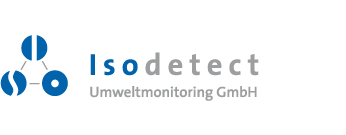Workshop on September 21/22, 2023
.
Investigation methods for pollutant degradation in contaminated sites
The two-day workshop deals with the most important detection methods for the biological degradation of various groups of pollutants (CFC, BTEX, PAH, MKW, pesticides). The basics of isotope methods (component-specific isotope analysis CSIA, BACTRAPS), metabolite investigations, molecular biological methods (qPCR), fingerprinting are taught > (GC-MS) and laboratory microcosms. To this end, we carry out laboratory demonstrations and practical exercises. Together with engineering companies, we use concrete examples to discuss the consideration of pollutant degradation processes in various remediation strategies (remediation in connection with MNA, preparation and success control of in situ processes, aftercare of pump-and-treat), this year with a special focus on climate-related effects.
Time:
Location:
Number of participants:
Cost:
Registration:
Target groups:
Training:
Prior knowledge:
…
Hotels:
.
€ 390 plus VAT including lunch and dinner
Non-binding mail to info@isodetect.de by June 30, 2023
Authorities, engineering offices, those responsible for remediation
The course is suitable for experts on soil protection and contaminated sites according to Section 36 GewO and Section 18 BBodSchG.
We recommend reading two articles in the spectrum of contaminated sites 02/2018 and 03/2018
Natural Attenuation – monitoring procedures and remediation concepts Progress Report (Part 1)
Natural Attenuation – Monitoring methods and remediation concepts – a progress report (Part 2) < /b>
Century Hotel Leipzig, Prager Str. 153
Balance Hotel Leipzig, Breslauer Str. 33
Hotel am Bayrischen Platz, Paul-List-Straße 5
Program
Day 1 Thursday, September 21, 2023: Microbiological and isotope chemical methods
09:30 Welcome and organizational matters
10:00 Start
1. Introduction to natural and stimulated remediation processes, Petra Bombach
2. Evidence for pollutant degradation in contaminated sites – from qualitative degradation to quantitative control of remediation, Heinrich Eisenmann
10:45 In situ methods – Part 1: qualitative methods
3. Contaminant ratios & GC/MS screening for forensic or MNA examinations, Anko Fischer
4. Metabolite analysis to prove BTEX & PAH degradation, Kevin Kuntze
6. qPCR analyzes to determine the abundance of pollutant-degrading microorganisms, Kevin Kuntze
12:00 Lunch and lab demonstrations
13:30 In situ methods – Part 2: quantitative methods
7. Component-specific isotope analysis as an efficient tool for evaluating and quantifying degradation processes, Heinrich Eisenmann
8. In situ microcosms (BACTRAPs) with isotopically labeled pollutants, Petra Bombach
6. PFAS, pesticides & pharmaceuticals – How can evidence of degradation be provided? Kevin Kuntze
15:30 Coffee break
16:00 Laboratory Methods
9. Laboratory tests to design in situ remediation procedures, Petra Bombach
10. Laboratory microcosms with 13C-labeled pollutants to determine mineralization rates, Petra Bombach
until 17:30 Discussion
11. Very complex. Three questions about the use of pollutant degradation in the remediation of contaminated sites. Heinrich Eisenmann
from 7 p.m.
Dinner together in the Alte Wache of the Ratskeller Leipzig, Lotterstraße 1
Day 2 Friday, September 22, 2023: Investigation of degradation processes as part of certain remediation strategies
08:45 Combining monitoring and remediation concepts
12. Understanding subsurface degradation processes – upcoming investigation methods, Kevin Kuntze
13. Practical example 1: How can the climate impact of renovation measures be correctly assessed? Alexander Poser (R&H Environment), Heinrich Eisenmann
10:15 am Coffee break
10:45 Monitoring of contaminant degradation and remediation concepts
14. Practical example 2: Investigation of PAH microbial degradation at a site contaminated with tar oil, Arnulf Sowa (Gibs geologists + engineers), Petra Bombach
15. Practical example 3: Evaluation of the natural degradation of pollutants and its stimulability at a former industrial site, Annika Beckmann (HPC AG), Kevin Kuntze
12:00 Lunch and lab demonstrations
13:30 Practical exercise
16. Conception and evaluation of groundwater monitoring in contaminated site management
until 3:45 p.m. Final talk
